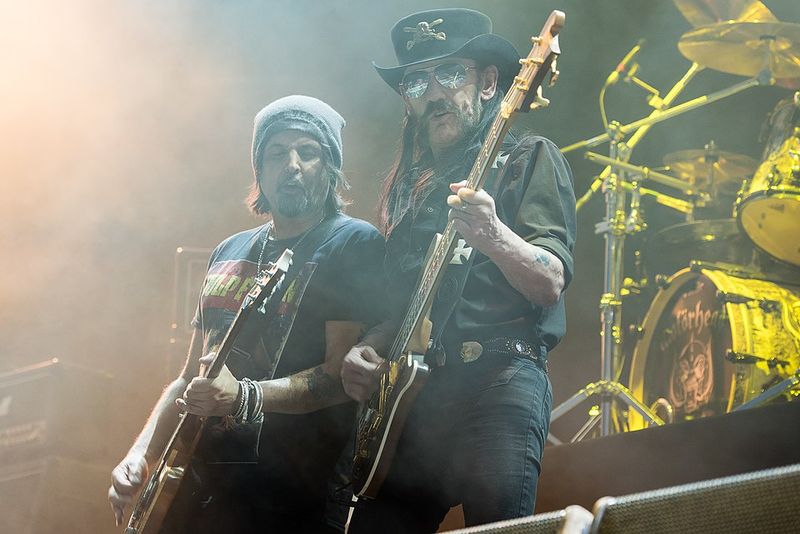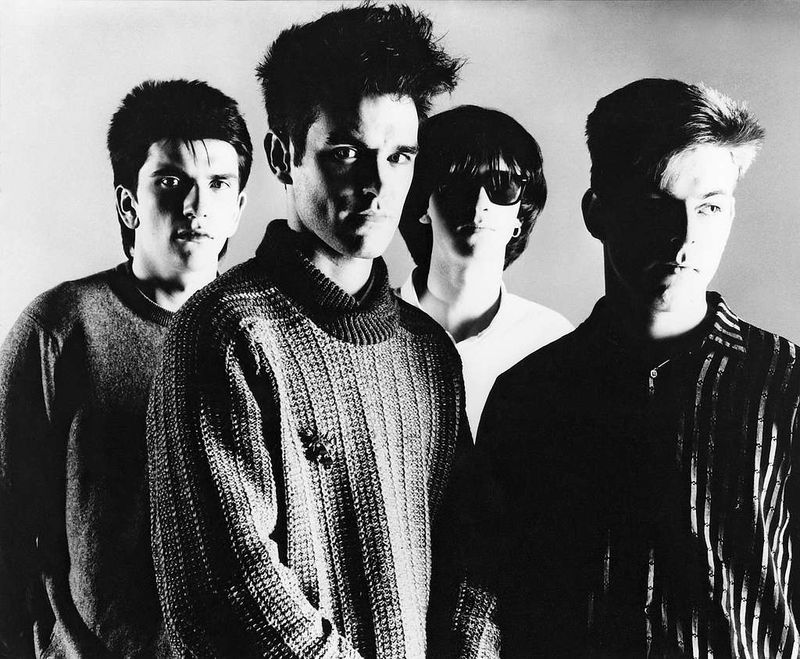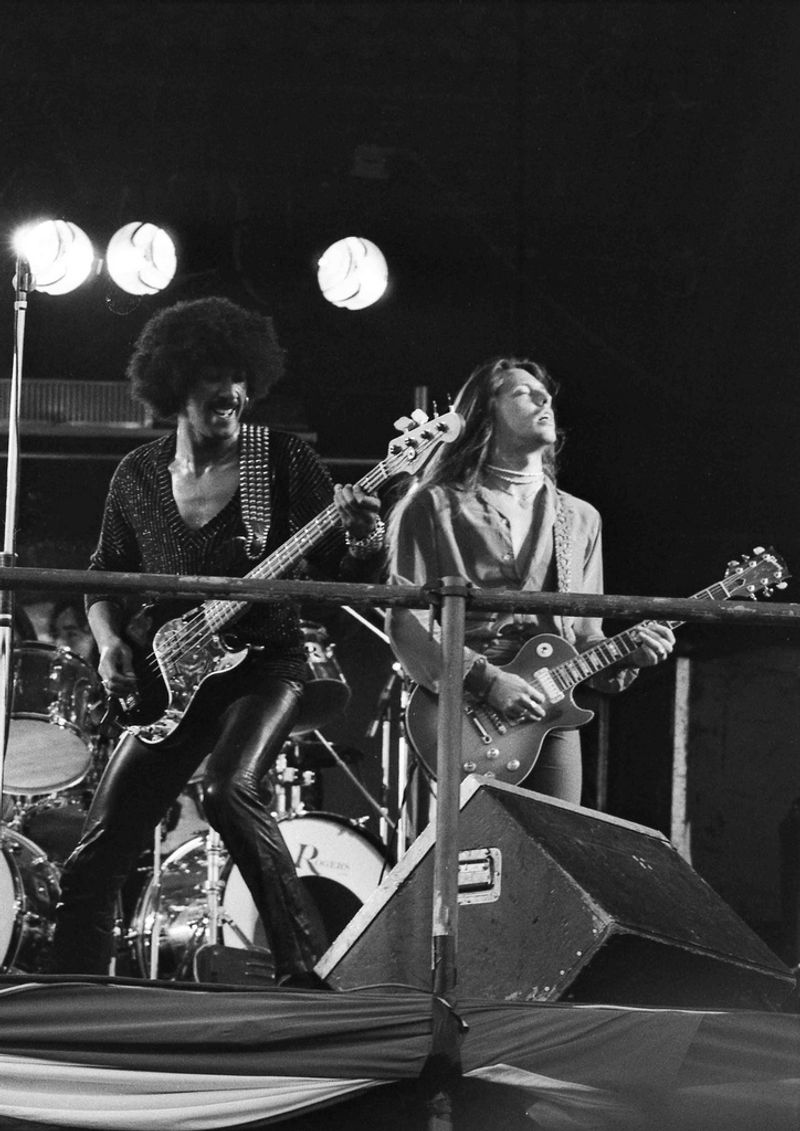The Rock & Roll Hall of Fame is supposed to celebrate the greatest artists in music history. But year after year, some of the most influential bands get left out in the cold. These ten legendary groups have shaped rock music, sold millions of albums, and inspired countless musicians — yet they still haven’t earned their rightful spot in Cleveland’s famous museum.
Motörhead
Lemmy Kilmister’s Motörhead didn’t fit neatly into any box — and that’s exactly what made them legendary. Their sound was too fast for traditional rock, too raw for metal, and too loud for anyone’s good. Songs like “Ace of Spades” and “Overkill” became anthems for rebels everywhere.
Formed in 1975, they influenced everyone from Metallica to punk bands across the globe. Despite a nomination in 2020, the Hall passed them over. Even after Lemmy’s death in 2015, his legacy grows stronger every year.
The snub feels especially cruel given Motörhead’s massive cultural footprint and their role in shaping modern hard rock and metal.
Soundgarden
Before Nirvana became a household name, Soundgarden was already rewriting the rules of rock music. Chris Cornell’s four-octave voice soared over complex, heavy riffs that mixed metal and alternative into something entirely new. Their 1994 album Superunknown produced hits like “Black Hole Sun” and “Spoonman.”
Nominated in both 2020 and 2023, they’ve been rejected twice despite critical acclaim and commercial success. Cornell’s tragic death in 2017 made their exclusion even more painful for fans. The band helped define an entire generation’s sound.
Yet somehow, the Hall continues to overlook one of grunge’s most important pioneers.
Iron Maiden
London’s Iron Maiden burst onto the scene in 1975 and never looked back. Their twin-guitar attack, elaborate stage productions, and mascot Eddie became metal’s gold standard. Albums like The Number of the Beast and Powerslave turned them into global icons.
With over 100 million records sold and arenas still packed on every tour, their influence is undeniable. They’ve been nominated twice — in 2021 and 2023 — but both times walked away empty-handed. Fans around the world remain baffled by this ongoing rejection.
Many believe the Hall’s bias against heavy metal keeps bands like Iron Maiden on the outside looking in, despite their massive impact on rock culture.
Oasis
“Wonderwall” isn’t just a song — it’s a cultural phenomenon that defined the 1990s. Oasis exploded out of Manchester with swagger, attitude, and melodies that entire stadiums could sing along to. Brothers Liam and Noel Gallagher fought constantly, but their chemistry produced Britpop’s biggest anthems.
Albums like (What’s the Story) Morning Glory? sold over 22 million copies worldwide. Their influence on modern British rock remains enormous, inspiring bands from Coldplay to Arctic Monkeys. Yet despite becoming eligible in 2019, they haven’t received a single nomination.
This oversight seems particularly shocking given their worldwide impact and continued relevance in popular culture today.
The Smiths
Morrissey’s poetic lyrics about loneliness and longing paired perfectly with Johnny Marr’s shimmering guitar work. Together, they created The Smiths — a band that redefined what indie music could be. Songs like “There Is a Light That Never Goes Out” and “How Soon Is Now?” became timeless classics.
Active only from 1982 to 1987, their influence far outlasted their brief career. Bands from Radiohead to The Killers cite them as major inspirations. They earned a nomination in 2016 but didn’t make the cut.
Critics and fans alike continue scratching their heads over why such an important band remains uninducted after all these years.
Judas Priest
Rob Halford’s leather-and-studs look became heavy metal’s uniform, and Judas Priest’s dual guitar attack set the template countless bands would follow. Formed in 1969, they crafted metal masterpieces like “Breaking the Law” and “You’ve Got Another Thing Comin’.” Their influence spans five decades and multiple generations of musicians.
After three nominations as performers, they finally received the Musical Excellence Award in 2022 — but many argue that’s not enough. Fans believe they deserve full Performer induction, the Hall’s highest honor. Their 50-year career and massive impact on metal deserve proper recognition.
The debate continues about whether the Hall truly respects heavy metal’s pioneers.
The Replacements
Raw emotion met punk energy when The Replacements formed in Minneapolis in 1979. Paul Westerberg’s songwriting captured the messiness of being young and lost better than almost anyone. Their 1984 album Let It Be influenced everyone from Nirvana to Green Day to The Goo Goo Dolls.
Despite universal critical respect and their role as alt-rock pioneers, they’ve never even been nominated. Their chaotic live shows and refusal to play the industry game might have hurt their commercial success. But their artistic legacy is undeniable.
The Hall’s continued ignorance of The Replacements represents one of its most puzzling oversights in the alternative rock category.
Jane’s Addiction
Perry Farrell’s vision transformed rock music in ways that still echo today. Jane’s Addiction blended punk, metal, and art rock into something completely original. Their 1988 album Nothing’s Shocking announced a new era, and they practically invented the modern music festival by founding Lollapalooza in 1991.
That festival alone changed how people experience live music, launching countless careers and creating a template still used today. They’ve been nominated twice — in 2017 and 2024 — but haven’t secured induction. Their influence on alternative rock’s commercial breakthrough in the 1990s cannot be overstated.
The Hall seems to undervalue their role in reshaping rock’s entire landscape.
Pixies
Kurt Cobain famously said he was trying to rip off the Pixies when he wrote “Smells Like Teen Spirit.” That quiet-loud-quiet dynamic they pioneered became the blueprint for 1990s rock. Boston’s Pixies combined surf rock, punk, and surrealism into songs that felt both catchy and completely bizarre.
Bands like Nirvana, Radiohead, Weezer, and Smashing Pumpkins all cite them as crucial influences. Albums like Doolittle and Surfer Rosa remain essential listening. Despite their enormous artistic legacy, they’ve never received a single nomination since becoming eligible in 2013.
This represents perhaps the Hall’s most inexplicable snub of an alternative rock pioneer.
Thin Lizzy
Phil Lynott’s twin-guitar harmonies and poetic storytelling made Thin Lizzy one of the 1970s’ most innovative bands. “The Boys Are Back in Town” remains a classic rock radio staple nearly 50 years after its release. Lynott broke barriers as one of rock’s first Black frontmen, bringing Irish soul to hard rock.
Their influence on bands like Iron Maiden and Metallica is well-documented. Nominated once in 2020, they were passed over despite their clear importance to rock history. Lynott’s tragic death in 1986 at age 36 cut short a brilliant career.
The Hall’s failure to induct Thin Lizzy dishonors one of rock’s true originals and most distinctive voices.














